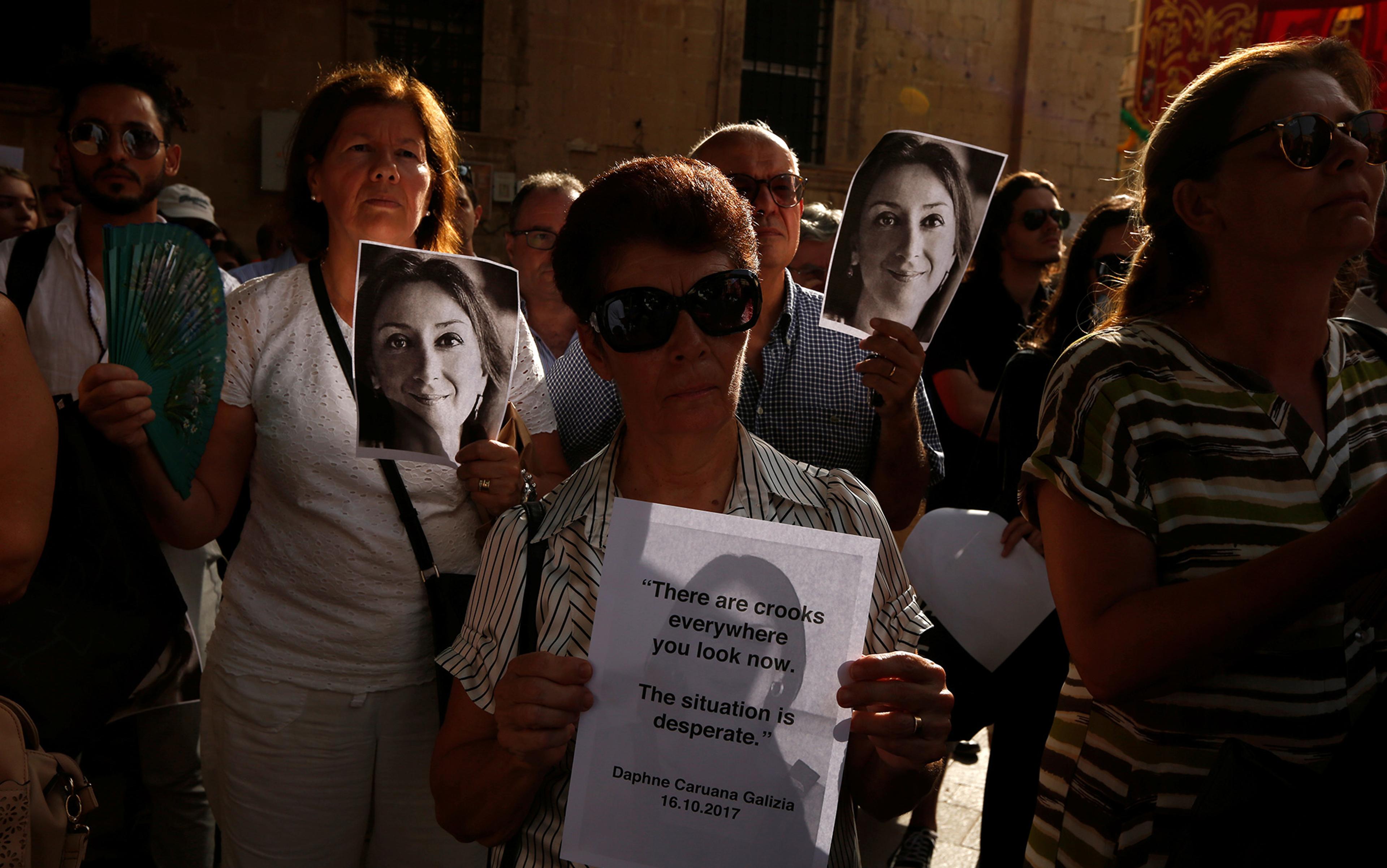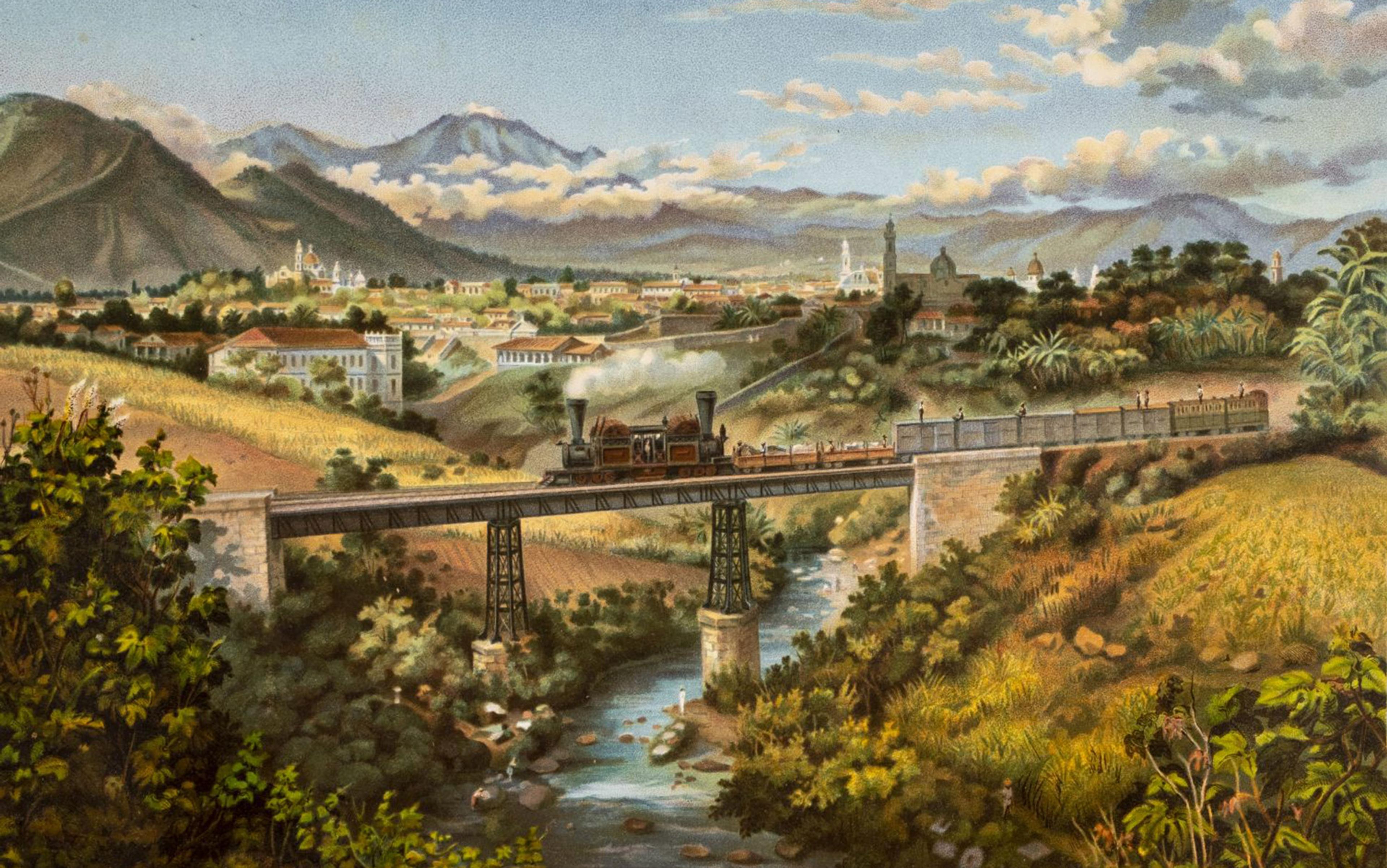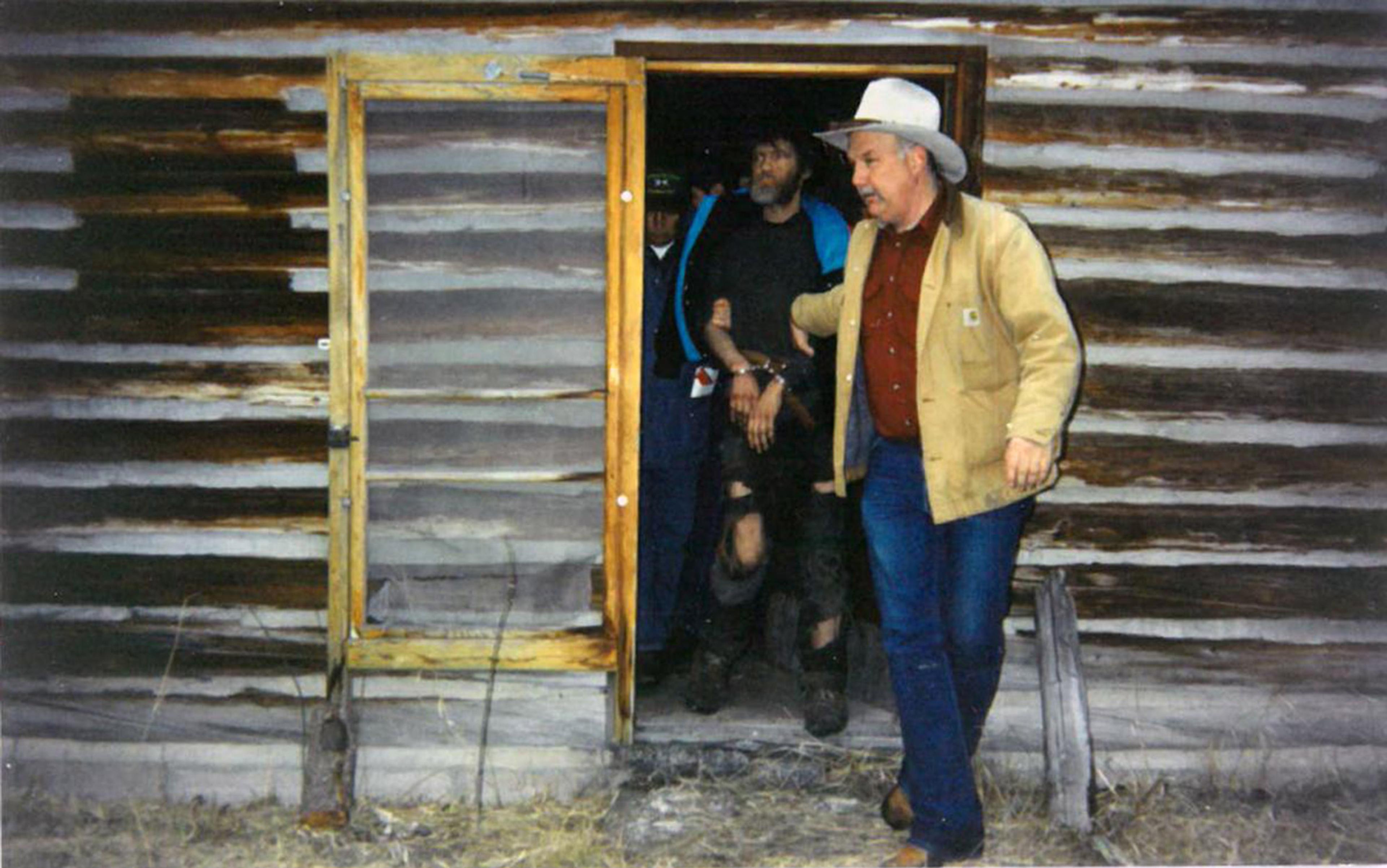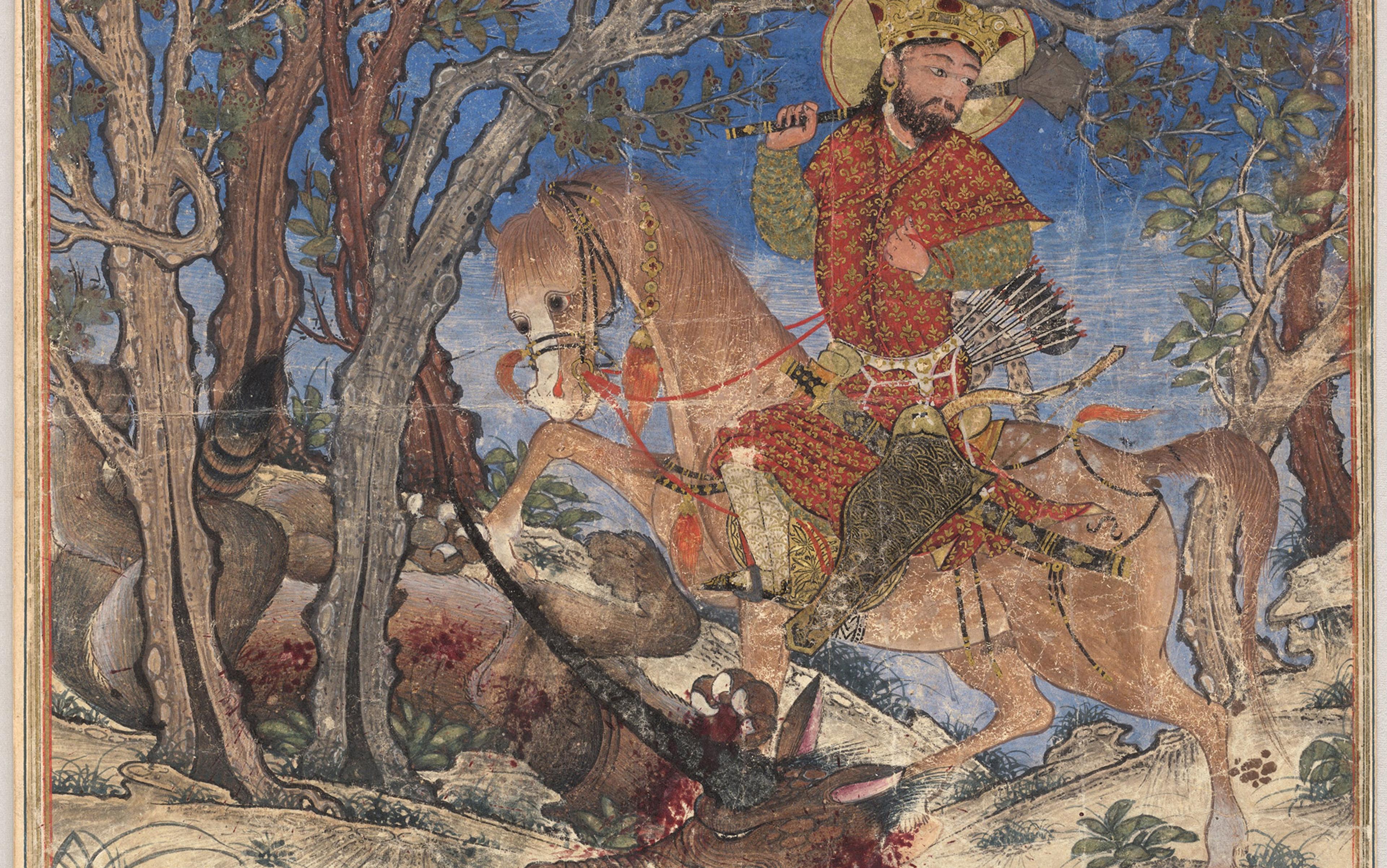In Kandahar, Afghanistan, in late 2001, I watched a girl of about nine strip a Kalashnikov rifle, inspect the bullets and reload the sound ones in a matter of minutes. That child lived in a mud-brick house in the middle of a graveyard. I lived there, too. I was staying with her family as I covered the fall of the Taliban regime for National Public Radio in the United States. I thought I’d learn more in the company of ordinary Afghans than in the single hotel in the capital formerly held by the terrorists, where the other Western journalists were. So I asked a militia friend to find me a host family.
That scene in our rug-strewn sitting room, where I slept at night and we gathered by day, stayed with me throughout the decade I remained in Afghanistan. It has stayed with me ever since.
Here is its significance. Afghans know how to fight. Once back in control of their country, that girl’s people did not need close air support to beat off a resurgent Taliban, or armoured vehicles packed with delicate electronics that could be maintained only by highly trained mechanics. What they needed was to be proud of their government. But Afghan government officials began stealing their money. And US government officials ignored – even enabled – the crimes.
This issue, corruption, was not on my mind at all when I decided to quit journalism and move to Afghanistan. I was not thinking about it as I set about rebuilding a village that had been reduced to rubble in the US bombing campaign, or setting up the country’s first independent radio station. I was not trying to impose some Western norm.
It was Afghans who brought the problem to me. Young people I asked about what they wanted to hear on the radio complained of shakedowns by the new governor’s militiamen – who wore US combat fatigues. A quarryman told me he couldn’t sell stone for the houses I was rebuilding: the governor had awarded himself a monopoly. Then he crushed it to gravel and sold it at an exorbitant markup to the US military base outside town.
When I learned Pashtu and moved to an unguarded compound in the middle of town, and the Taliban were filtering back into the region, delegations of elders would come calling. ‘The Taliban hit us on this cheek,’ a dignified spokesman would say, setting down his cup of green tea to deliver a slap to his own face, ‘and the government hits us on this one!’
So I started working on corruption: because I knew that if the US government kept helping it flourish, we – and the Afghan people – would lose the war. And we did.
But the loss of the longest war the US ever fought was hardly the first time corruption has shaped history.
‘They preach only human doctrines’ – not Holy Writ – ‘who say that as soon as the money clinks in the money chest, the soul flies out of purgatory.’ So reads Thesis 27 in a carefully sequenced series of statements that a law student-turned-priest and theology professor named Martin Luther wrote in 1517. At the time, the Catholic Church, the dominant power in Europe from the edge of Ireland nearly to Moscow, was engaged in a vast extortion racket. Worshippers could avoid the torments of a ghastly pre-Judgement Day refugee camp called Purgatory, if they just shelled out the price of an ‘indulgence’, a papal safe-conduct.
In 1517, a sales push was launched in Germany. Half the proceeds were earmarked to cover the staggering debt a young cleric had taken on to buy a powerful archbishopric from the pope. A bling-loving scion of the Medici dynasty, that pope routinely auctioned off Church offices and waivers of canon law. The rest of the return on indulgence sales would go straight to Leo X himself, to help pay for a gaudy piece of real estate.
Thesis 66: ‘The treasures of indulgences are nets with which one now fishes for the wealth of men.’ Why, wonders Luther’s Thesis 86, did the stupendously rich pope not ‘build this one basilica of St Peter with his own money rather than with the money of poor believers?’
Without the outraged Indigenous allies who joined him, could Cortés have brought down that great empire?
Nearly all 95 of those epoch-making premises are taken up with aspects of what we would call corruption: harnessing public office to the purpose of self-enrichment. In this egregious case, the offices in question were sacred and the stakes eternal. Public indignation burst across Europe in a shockwave that dramatically reshaped the continent’s politics, culture and economy.
History lurches with such turning points, in which systemic corruption, or the reaction against it, changed the course of world events.
Three years after Luther’s propositions went viral, a mixed army of Spaniards and Native Americans laid siege to a metropolis. In terms of population, and cultural and architectural sophistication, the Aztec capital of Tenochtitlan rivalled any city in Europe. Evidence in accounts written both by the commander of that army, Hernán Cortés, and Indigenous scholars, suggests that much of its magnificence derived from the Aztec elite’s abuse of public power for personal gain. So arises a question: without the outraged Indigenous allies who joined him, could Cortés have brought down that great empire?
In Corruption and the Decline of Rome (1988) – to offer a final example – Ramsay MacMullen devotes a chapter to the system that would become Pope Leo X’s default 1,000 years later: ‘Power for Sale’. Assessing its impact on the fortunes of Rome, MacMullen wonders how it was possible for a rowdy, materially and technologically inferior coalition of untutored tribesmen ‘so quickly and effortlessly [to] gain control of Germany, Gaul, and Spain’. The question mirrors the general astonishment when, last summer, gangs of shaggy-haired fighters mounted on motorcycles overran Afghanistan in a matter of days.
In both cases, a fatal impact of ‘power for sale’ was the hollowing-out of defence forces. ‘The size of Rome’s armies was contemptible,’ writes MacMullen. And the disgruntled, ill-equipped soldiers who remained on the front did not stand and fight. ‘We are told of a field of battle, a district, an entire province simply abandoned.’ Just what happened in Afghanistan in August 2021.
For corrupt elites, defence budgets represent an enticing opportunity for pillage. Citizens rarely question investments they think will protect them, and the details of expenditures are usually classified.
A common technique is for officers to pad the payroll with what The Guardian in 2016 identified as ‘fake names or dead men’, then pocket the excess salaries. That’s how districts end up ill-defended by units of contemptible size.
Or why not loot the equipment budget, by failing to buy materiel for which funds have been allocated, or by selling supplies – including to the enemy – or by purchasing shoddy alternatives to the reliable food, shelter and weaponry that those who put their lives on the line for their community deserve? That’s how soldiers run out of ammunition in the middle of a firefight with raggedy foes.
Sums of money, weapons and weatherproof tents can be counted; they help quantify corruption’s toll. But to think only in numbers is to overlook the greater harm and the real danger: the moral injury corruption inflicts.
How do you suppose Roman or Afghan soldiers felt, in their scattered handfuls, stomachs empty because of the stench of their putrid breakfast, as they offered themselves up on behalf of their ruling authorities? What sensations scalded their flesh as they realised that their privations were perpetrated by the representatives of those very authorities – by superiors they longed to admire? Can you imagine the pain? The shame?
And when the soldiers put their minds to their predicament? What if the only purpose they could find in this sadism was the accumulation of more gold or dollars than the supposed superiors or their progeny could ever spend?
How are souls deformed under the obligation to violate cherished values in order to survive?
The word that comes to my mind is ‘betrayal’. Have you ever experienced betrayal? Is there a more searing psychic wound? Psychic wounds – betrayal and pain and shame – are powerful goads to action, not always considered.
And what about such a country’s civilians? What breeds in their hearts when, as an Afghan colleague bitterly noted, ‘the very people who are supposed to be upholding the law are the ones breaking it’?
Once, members of the cooperative I set up in 2005 needed to retrieve a piece of equipment from customs. I was away. They could not extract the item without offering an ‘emolument’, as the US constitution calls it. In disgust – partly at themselves – they paid.
What is the impact of having to do something like that day after day? How are souls deformed under the obligation to violate cherished values in order to survive?
The way some react may look like secession. Soldiers abandon their posts. Voters withhold their ballots. Caravans set forth in an exodus of biblical proportions. Or a whole people ‘dissolve[s] the political bands which have connected them with another’, to quote the US Declaration of Independence.
The pain of betrayal and disrespect can also spark violent rage or a desire for revenge. And not just in Afghanistan or ancient Rome.
Pick any country that is beset by crisis today: huge public protests that mow down a president and metastasise into war; attacks by insurrectionists mouthing ideological slogans. Now look at the government of the country in question. Is justice under orders or for sale? Do top officials’ close relatives hold key government jobs? Are petty bribes for low-level officials ‘just the way things get done’?
Yet the violent reactions corruption often prompts may be the lesser of its evils. The greater harm may result from the betrayal itself: a natural or human-made disaster that does irreparable harm – like a chemical explosion in an ancient port city, or a region wrecked by a hurricane; a financial implosion brought on by systemic fraud. Or, let’s take the greatest calamity looming over our species today: the ruin of the natural world.
Since just 2018, for a single example, thousands of square miles of Amazon rainforest – the wettest, lushest and most biodiverse region on this lumpy planet – have burned. To call the Amazon a carbon sink does not begin to encompass the magnitude of this disaster. Think of that place as not just a lung, but as more vital organs of the living Earth than current human knowledge can even identify.
What happens without it? If a single comet slamming into the Gulf of Mexico exterminated 80 per cent of species, ending the age of the dinosaurs, then it doesn’t bear thinking about. Yet, under the current notoriously corrupt governments of Bolivia and Brazil, the race is on to sack it.
Betrayal. No wonder the Earth is lashing out.
How is it, then, that in the West we pay so little attention to corruption? We brush it away, as an innate feature of the human condition, or of the culture of certain foreign countries. Or – sometimes and – as a distasteful aberration, a scandal beneath notice.
Writing in 2016 for a unanimous US Supreme Court, chief justice John Roberts voiced that disregard. ‘[O]ur concern is not with tawdry tales of Ferraris, Rolexes, and ball gowns,’ pooh-poohs his opinion overturning the corruption conviction of Bob McDonnell, a former governor of the state of Virginia, for accepting nearly $200,000-worth of presents from a businessman seeking his help.
The real concern, all eight sitting justices agreed, isn’t corruption, it’s the fight to curb it. Prosecutorial overreach against government officials and corporate executives, that’s what endangers the US.
Really?
Within weeks of that ruling, two very different mavericks blasted US presidential politics apart. One started chanting ‘Drain the swamp!’ The other called for a ‘political revolution’. Voters came running. Traditional politicians stood there, agape. The revolution happened, but not the one that guy was hoping for.
Corruption, in other words, unmoored the US political system, with the ultimate consequences still unknown. Yet, here and in other Western countries, it is easier to ignore than it is in Afghanistan. Here in the US, citizens are not regularly shaken down in the street. Corruption is cloaked in legal abracadabras. The safe is cracked with velvet gloves.
A handful of US defence industry giants, for example, all with long rap sheets, garner the vast bulk of Pentagon procurement and service contracts. Those contractors peddle armoured vehicles packed with delicate electronics. They sell defective weapons systems. They submit budgets whose line-items are inflated or even left blank: TBD. US soldiers don’t go hungry. But the wars are lost just the same.
In the US today, such comments imply, bribery is just the way things get done
The perpetrators of this brand of war profiteering wear business suits and enjoy respect. They have embroidered an elaborate fabric of connections with government officials who decide on the size of the defence budget and the uses to which the money will be put. These connections are not just purchased via campaign contributions. Personnel shuttle back and forth between private industry and the Pentagon, to weave a dynamic and powerful network. Its objectives routinely trump the public interest.
Does your country’s defence ministry exhibit a similar pattern? How do banking industry leaders and your government’s finance ministry officials interact? How did those officials and executives fare last time a financial bubble upended your or your neighbours’ lives? Who controls your energy and mining sectors? Have any of those individuals deliberately crippled government agencies tasked with protecting the health of citizens or landscapes?
Now consider how we, the victims – at least in the comfortable classes – often react. Instead of objecting and demanding that such practices cease, we are tempted to explain them away. The pose can seem deliciously counterculture, a sign of realism.
When I interviewed Washington lawyers and veteran court-watchers about the unanimous reversal of McDonnell’s corruption conviction, I got such rationalisations. ‘If that conviction were allowed to stand,’ the chorus went, ‘it would amount to criminalising politics.’ In the US today, such comments imply, bribery is just the way things get done.
Often, we gloss over the phenomenon altogether. We devise purely metaphysical understandings of Luther’s revolt, or of the violent act committed 1,500 years before that by a young rabbi from Nazareth. Surrounded by a rabble of his neighbours, he strode into the august government complex where the corrupt ruling elite of his day stole people’s money. And Jesus started throwing the furniture around.
Did this insurrection truly contain no commentary about the political economy of the earthly kingdom of Herod the Great?
Whose interest does it serve to downplay the corruption that outraged Jesus and Luther? What is lost when it becomes fashionable to insist that the human values of integrity and fairness are phoney, not sacred? Who wins when we work to identify useful functions corruption might serve, or shrug and call it ‘human nature?’ In whose interest is it to presume that people who amass staggering fortunes must be smarter or better than the rest of us, rather than dangerous criminals?
With these questions in mind – and begging Martin Luther’s indulgence – I offer up the following propositions for dispute:
- Current usage is wrong to suggest that ‘the Midas touch’ is a positive thing. On the contrary, the compulsion to reduce everything of beauty and value to gold – or to electronic signals in virtual bank vaults – is a disease that threatens our very societies.
- Competition among elites afflicted with this Midas Disease is a race with no finish line. There is never enough.
- To feed their compulsion, they build powerful (though informal and flexible) coalitions.
- These groupings cross social categories. They include government officials, executives of businesses and supposedly benevolent charities, and out-and-out criminals.
- Attaining public power in order to maximise their personal wealth is the primary aim of such coalitions. Corruption, in other words, is basic to their operations.
- Members often take up different roles in the different sectors of activity, moving from government office to industries they oversaw, and back into government.
- Members who occupy government office use its levers to enrich themselves and their fellows, ahead or instead of advancing the good of the citizens at large.
- Such abuse includes absconding with public funds or property, or steering a disproportionate share of government expenditures towards the coalition.
- Another and greater abuse consists in repurposing government itself to serve the coalition’s money-maximising interests (and even rival coalitions of a similar stripe).
- This abusive repurposing includes writing the rules to benefit coalition-members’ private business activities, dismantling rules or neglecting to write them at all, or prioritising enforcement in ways that advantage coalition-members and their interests.
- The endless competition for zeroes in bank accounts rages among and even within these groups, fuelling the drive to abuse public office.
- The rewards of corrupt practices are not dispersed in one-to-one transactions only. More effectively, they are spread through the coalition in an ongoing process of indirect exchanges.
- Law courts are therefore wrong to define the crime of corruption in minimal terms as a standalone exchange between only two parties.
- They are wrong to suggest that citizens have no legal right to the honest and good-faith performance of duties on the part of government officials and the executives of businesses whose activities shape their lives.
- Investigators, prosecutors and judges are wrong to prioritise violent crime over corporate crime and corruption, for the latter causes more harm to citizens and society.
- If corruption is criminal, those who enable it are guilty of complicity.
- Examples of such enabling include helping to hide ill-gotten wealth in untraceable bank accounts, or converting it into poorly regulated real assets such as real estate or football teams, or pleading in favour of corrupt practices in court or the public square.
- The wealth-addicted and their enablers are adept at exploiting crises – including those wrought by their own practices – at the expense of those worst affected.
- Corrupt capture of political and economic institutions and the culture at large is not a historical constant. Victims have reversed it by penalising perpetrators and enacting systemic reforms. Or by establishing new forms of government.
- But corrupt networks are resilient. When challenged – and even after suffering such blows as the fall of a government or the prosecution of leading members – they usually succeed in maintaining or reinstating the corrupt system.
- Corrupt networks deftly use complexity and impenetrable language to confuse citizens and gain cover for their activities.
- Another technique they employ to confound proponents of ethical values is to exacerbate antagonisms among different groups within the population.
- Citizens who are manipulated into allowing identity divides to overshadow their shared interest in curbing corruption will continue to suffer harm.
- For corruption is not a victimless offence. Victims include people left impoverished or homeless by financial crises; people dispossessed of ancestral lands; people whose air or water is unfit for consumption, or whose soil is too toxic to farm; people disproportionately harmed by fire or flood or construction failures or other natural or human-made disasters; people who go unhealed or even poisoned by dangerous ‘medicines’; citizens whose own lives and those of their descendants are stunted by diminished access to public goods, such as education, healthcare, law enforcement protection, and opportunities to launch businesses or buy or rent property; people whose jobs are eradicated by the imposition of other economic activities that benefit only a few coalition-members; people whose dignity is robbed by these and other practices; human society as a whole; thousands of species of nonhuman beings whose right to life is extinguished in order to further enrich Homo sapiens infected with the Midas Disease; the miraculous planet that gave us birth; and future human generations who will be condemned to live on a vastly damaged and destabilised incarnation of that planet – if they are able to keep living there at all.






